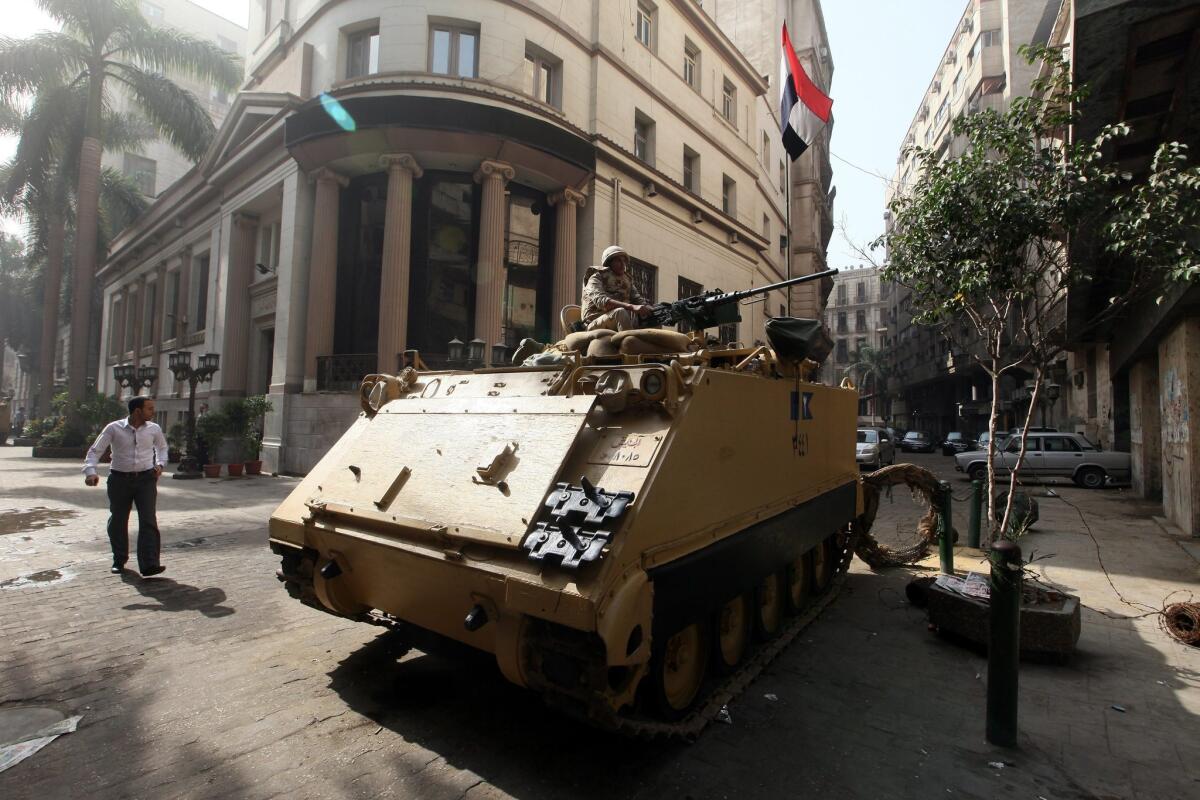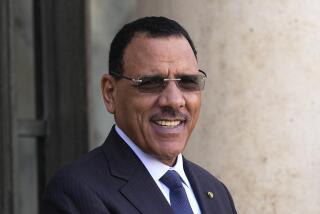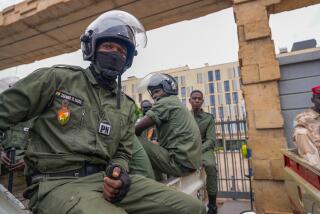State of emergency canceled in Egypt

- Share via
CAIRO — Egypt declared an end to its state of emergency Tuesday, nearly three months after it was imposed in the midst of nationwide protests that followed the ouster of Islamist President Mohamed Morsi.
The government announcement came after an Egyptian court ruled that the emergency decree issued Aug. 14 had expired. The government had previously announced that it would end two days later, on Thursday.
The state of emergency was declared in the midst of a violent crackdown on two protest camps that were demanding Morsi’s reinstatement as president. Hundreds died and thousands more were injured as the military-backed government routed the protests.
In September, the interim government announced a two-month extension of the state of emergency and curfew. Local news reports suggested that the military-enforced curfew is also likely to be lifted, although official reports were unclear.
A military spokesman, Col. Ahmed Ali, issued a statement on his official Facebook page saying that government officials had not received “any judicial rulings thus far, and are committed to enforcing the curfew during its set hours” until being told otherwise.
Earlier this month, authorities had said that Egyptian law required an end to the exceptional measures, put in place because of the unrest following Morsi’s removal from office in a military coup on July 3. Morsi, Egypt’s first democratically elected president, has been in custody ever since.
In the weeks after his ouster, authorities declared that the sit-ins of tens of thousands of the deposed Islamist’s supporters, who camped out for over a month in Cairo’s Rabaa Al Adawiyah and Nahda Squares, posed a threat to national security.
The crackdown, however, appeared to fuel further violence in Egypt, especially in the turbulent and largely lawless Sinai Peninsula, where armed groups thought to be be affiliated with or supportive of Morsi’s Muslim Brotherhood have carried out attacks on government installations.
Thousands of supporters continue to protest, demanding Morsi’s reinstatement.
Morsi and several other senior Brotherhood officials are now facing charges of inciting violence and killing peaceful protesters. The ousted leader was also charged with espionage, jailbreak and premeditated murder of security personnel.
ALSO:
U.S., Iran trade accusations over hitch in nuclear talks
Aid workers struggle to reach Philippine typhoon victims
With nuclear plants idled, Japan launches pioneering wind project
Twitter: @IngyHassieb
More to Read
Sign up for Essential California
The most important California stories and recommendations in your inbox every morning.
You may occasionally receive promotional content from the Los Angeles Times.










